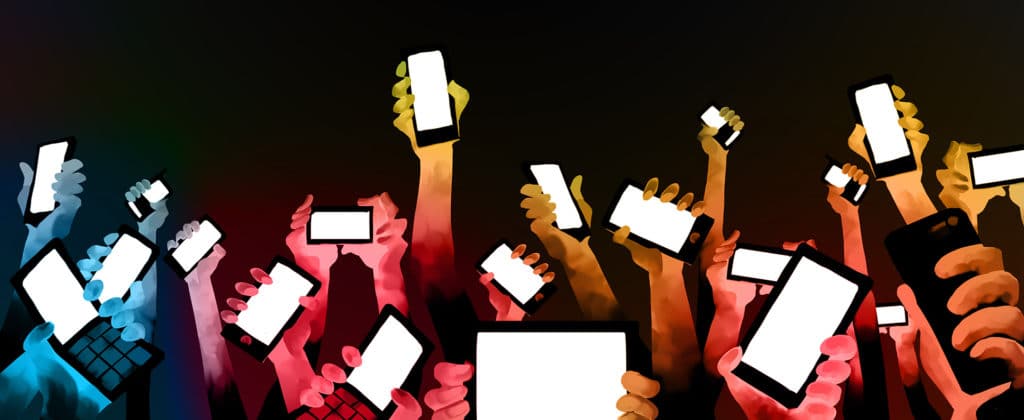Guest post by Koliwe Majama, a Zimbabwean media, information, communications, and technologies consultant with over 15 years experience working in civil society lobby and advocacy.
The internet has exploded and may, in the few hours remaining before the poll on Monday, decide who takes the jackpot.
Zimbabwe is going into a make-or-break election to choose its next president, 210 legislators, and nearly 2,000 local government officials all in one day — July 30, 2018. The jackpot is obviously the presidency, pitting veteran politician Emmerson Mnangagwa (75) against rookie Nelson Chamisa (40).
The question is: Will the government throttle the internet?
Assessing the risk of an internet shutdown
Since the soft coup in November last year that saw the ousting of long-term strongman Robert Mugabe, the government has appeared to keep their cool, and the internet has seemingly been freer than ever before.
But D-Day is hours away, and the situation is tense.
The hype around Zimbabwe’s election is now at its zenith, just before polling day. Political campaigns dominate the news cycle as last-minute press conferences are arranged and analysts lined up. At the same time, social media platforms — particularly Facebook, Twitter, and WhatsApp — have become a complete echo chamber as the election preoccupies conversations.
Zimbabwe’s government has a lot to lose, should it completely shut down the internet; it has legitimacy issues that may be muddied further by any attempts to close democratic space.
During Robert Mugabe’s reign, public officials issued threats over the “irresponsible” use of the internet and arrested citizens exercising their rights to free expression through dissent. There was a flash-flood shutdown of WhatsApp in 2016 during a nationwide mass demonstration that saw thousands boycotting work.
That’s not going to be easy this time around. A wave of foreign election observers have covered the country as Mnangagwa’s government seeks legitimacy after last year’s divisive coup.
Then and now
Compared to the last election, held in 2013, there are more Zimbabweans connected to the internet, mainly via mobile phone. At the end of 2013, the mobile penetration rate stood at 103.5% and internet penetration at 39.8%. Today, Zimbabwe’s mobile penetration rates stand at 84.6% following a 16.8% decrease in active mobile subscriptions (largely due to increasing use of internet-based calling services such as Skype, Viber, Facebook, and WhatsApp calls) and an internet penetration rate of 52.1%.
Voters can now check their registration data on mobile phones, a first for Zimbabwe. Independent candidate Fadzayi Mahere launched her bot, an automated online personal assistant, Shandu (short for Shanduko meaning “change”), while the ruling Zanu PF party’s presidential candidate, Mnangagwa, launched an Android application. Candidates are also now easily accessible via a WhatsApp bot, Twimbo, launched early this week by Magamba Network.
Since 2013, the media began to see social media as the elections game changer.
It was estimated that Facebook, the most popular social media platform at the time, had approximately 1.5 million users, and that user base has only continued to grow. In this election cycle, there has been immense coverage of main opposition MDC Alliance campaign rallies and addresses on Facebook in the face of a near blackout by the public broadcaster, ZBC.
Zimbabwe’s online media environment
Last month, Information Communication Technology and Cyber Security Minister Supa Mandiwanzira said the government did not see the need to curtail the freedoms that come with internet access.
This, however, cannot be taken for granted, especially with the increase in the circulation of “fake news,” disinformation and misinformation, analyses, and opinion polls on social media platforms. “Fake news “is set to increase in the days before and during the election, and even more so after polling stations close and results are displayed, as required by the law.
It is clear that surveillance is also on the rise on social media following the unleashing of online mobs such as Varakashi — a cabal of internet trolls supporting Mnangagwa and “dissing” everyone else not supporting him. While it may seem that the government has only flooded its supporters on social media to wage an online war against dissent, it is clearly also a very strategic move for the trolling and targeting of prominent opposition players and online influencers. It is likely that the same metrics will be used to determine which platforms pose a threat to a “peaceful” election and therefore may experience a throttle.
While it remains technically impossible for Zimbabwe to have a total blackout of the country’s internet, selective blackouts can be anticipated. This is what motivated Magamba Network’s internet shutdown social media awareness toolkit social media campaign.
Tools for action
For those in Zimbabwe, you can use the Open Observation of Network Interference (OONI) applications and Netblocks to help monitor the blocking of websites and detect any network disruptions. In the case of censorship, you can likely use a virtual private network (VPN) to access blocked content. Digital Society of Zimbabwe recommends ExpressVPN, Psiphon, and Buffered for use in country. Activists, civil society, and independent media can also reach out to Access Now’s Digital Security Helpline for 24/7 assistance.
Should a shutdown occur, it is of the utmost importance to raise awareness by sharing the experience using the hashtags #SwitchBackOnZW and #KeepItOn and making calls for its restoration. You can also share your personal story with the #KeepItOn coalition here.
Zimbabweans are not new to putting pressure on the authorities over threats to internet access in the country. In January 2017, there was an outcry in response to the sharp increase in mobile voice and data costs seen as an attempt to curtail free expression and sharing of information at a time when Zimbabweans were increasing pressure for more democratic governance. The ministry responded with a prompt directive to reduce the prices.
In the meantime, there is hope that Zimbabwe’s government will #KeepItOn.
